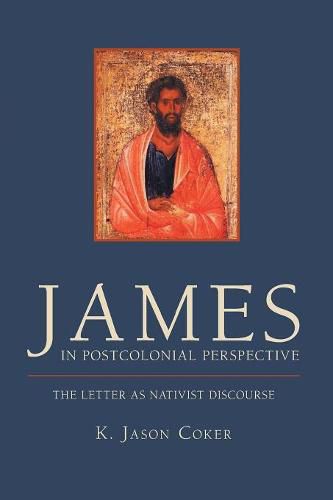Readings Newsletter
Become a Readings Member to make your shopping experience even easier.
Sign in or sign up for free!
You’re not far away from qualifying for FREE standard shipping within Australia
You’ve qualified for FREE standard shipping within Australia
The cart is loading…






James confronts the exploitive wealthy; it also opposes Pauline hybridity. K. Jason Coker argues that postcolonial theory and the theoretical perspectives of Aime Cesaire, Frantz Fanon, and Ng?g? wa Thiong'o allow us to understand how these themes converge in the letter. The emphasis in James, which Coker argues is a genuine, early letter from Jerusalem, upon purity and moral perfection functions as nativist discourse that constructs a pious identity by simultaneously opposing the exploitation of the Roman Empire and a peculiar Pauline form of hybridity that compromises with it. James refutes Roman cultural practices such as the patronage system and economic practices that threaten the identity of the letter’s recipients. At the same time, James condemns those who would transgress the boundaries between purity and impurity, God and world, as whores,
sinners, and two-faced. Coker understands both Paul and James as competing leaders seeking to negotiate Judean identity in relation to the Roman Empire.Paul’s capacity to interchange his nested identities based on his circumstances puts him at odds with James’s purist, nativist notions of identity, which starkly oppose the Roman Empire and call hearers in the Diaspora to find their home in the empire of God.
$9.00 standard shipping within Australia
FREE standard shipping within Australia for orders over $100.00
Express & International shipping calculated at checkout
James confronts the exploitive wealthy; it also opposes Pauline hybridity. K. Jason Coker argues that postcolonial theory and the theoretical perspectives of Aime Cesaire, Frantz Fanon, and Ng?g? wa Thiong'o allow us to understand how these themes converge in the letter. The emphasis in James, which Coker argues is a genuine, early letter from Jerusalem, upon purity and moral perfection functions as nativist discourse that constructs a pious identity by simultaneously opposing the exploitation of the Roman Empire and a peculiar Pauline form of hybridity that compromises with it. James refutes Roman cultural practices such as the patronage system and economic practices that threaten the identity of the letter’s recipients. At the same time, James condemns those who would transgress the boundaries between purity and impurity, God and world, as whores,
sinners, and two-faced. Coker understands both Paul and James as competing leaders seeking to negotiate Judean identity in relation to the Roman Empire.Paul’s capacity to interchange his nested identities based on his circumstances puts him at odds with James’s purist, nativist notions of identity, which starkly oppose the Roman Empire and call hearers in the Diaspora to find their home in the empire of God.